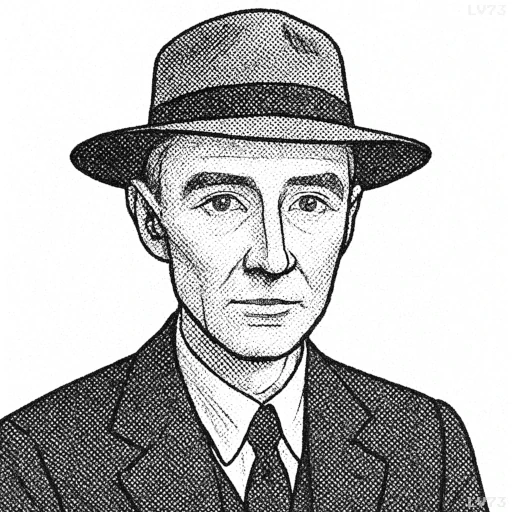“When you see something that is technically sweet, you go ahead and do it and you argue about what to do about it only after you have had your technical success. That is the way it was with the atomic bomb.”

- April 22, 1904 – February 18, 1967
- American
- Theoretical Physicist, Scientific Director of the Manhattan Project, “Father of the Atomic Bomb”
table of contents
Quote
“When you see something that is technically sweet, you go ahead and do it and you argue about what to do about it only after you have had your technical success. That is the way it was with the atomic bomb.”
Explanation
In this quote, Oppenheimer reflects on the seductive allure of scientific achievement, even when detached from ethical considerations. The phrase “technically sweet” conveys the pleasure and elegance scientists feel when solving a complex problem. Yet his admission—“you argue about what to do about it only after”—reveals a troubling pattern: that technical capability often outpaces moral reflection. With chilling clarity, he acknowledges that the atomic bomb was pursued for its scientific promise, not its humanitarian consequences.
Oppenheimer made this statement during a 1954 security hearing that questioned his loyalty and moral responsibility. His words lay bare the culture of the Manhattan Project, where intellectual momentum and wartime urgency drove rapid progress, leaving little space for pause. This quote is not a boast but a lament, an acknowledgment that brilliance without ethical foresight can lead to irreversible outcomes.
In the modern world, this warning applies broadly—to AI development, biotechnology, and military research, where “technically sweet” innovations can easily eclipse moral caution. Oppenheimer’s reflection challenges us to reconsider how and when ethical judgment enters the process of discovery, urging scientists, policymakers, and the public alike to ensure that capability does not outrun conscience.
Would you like to share your impressions or related stories about this quote in the comments section?

